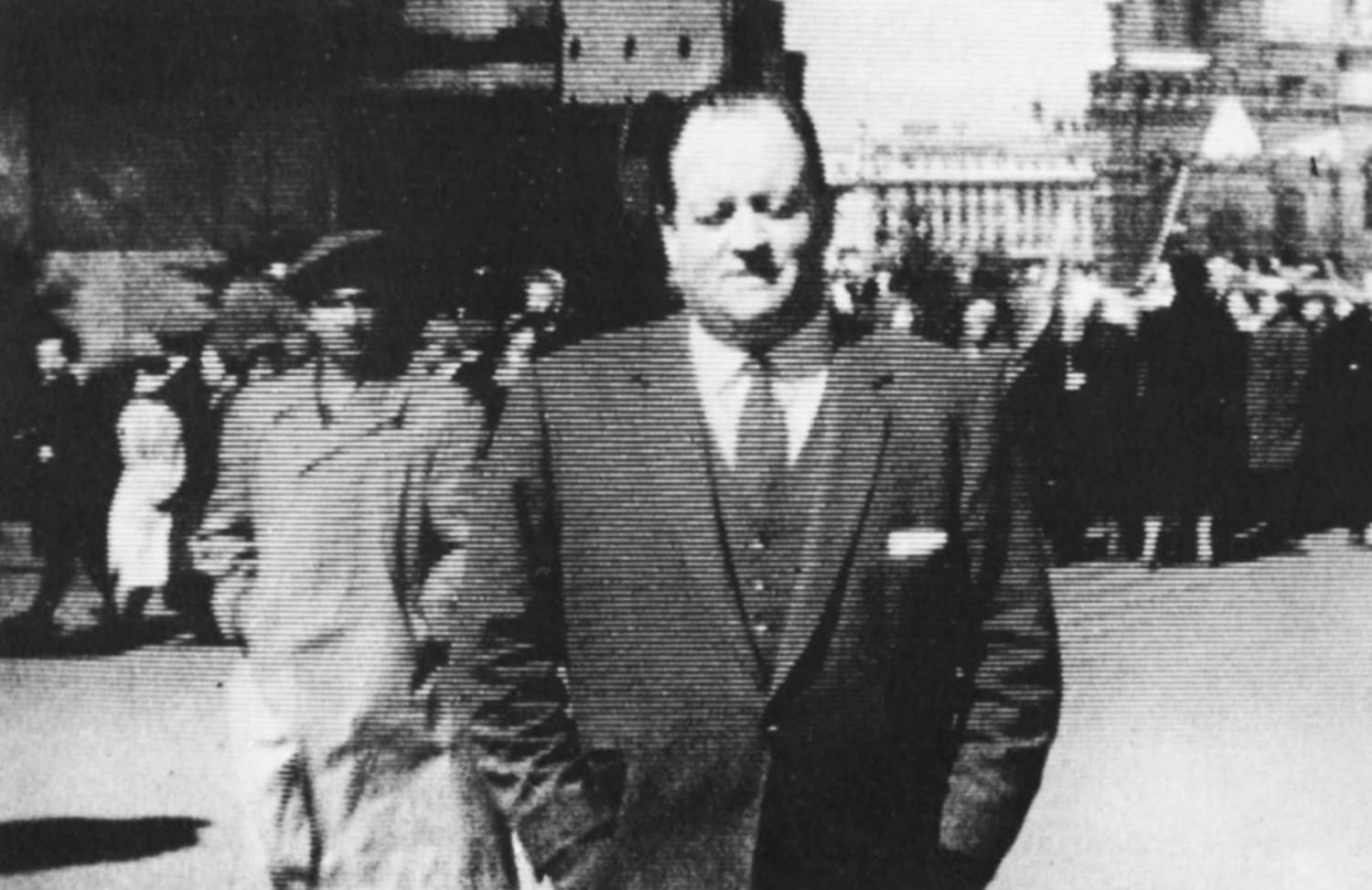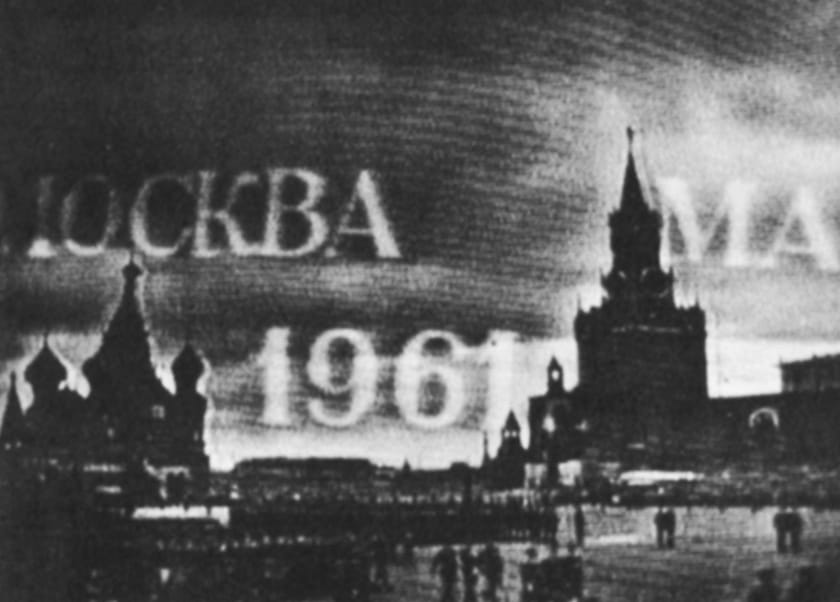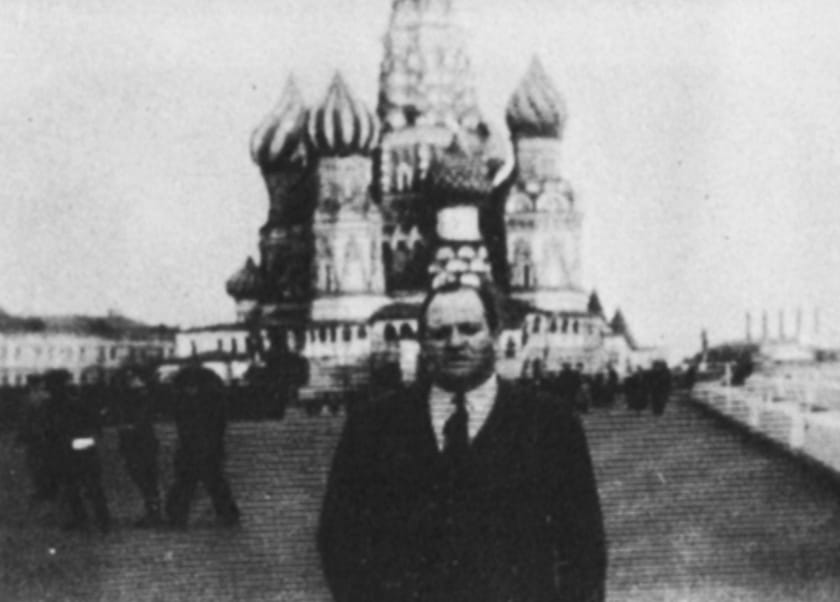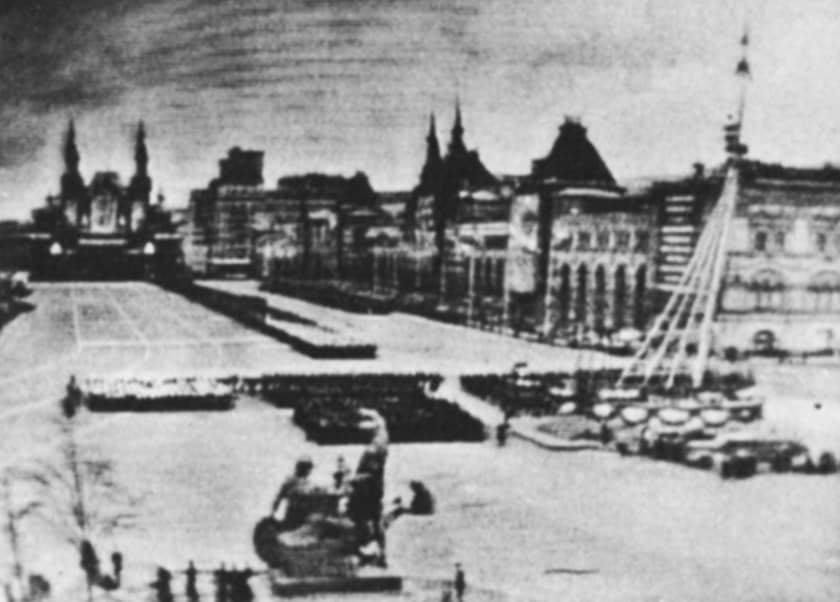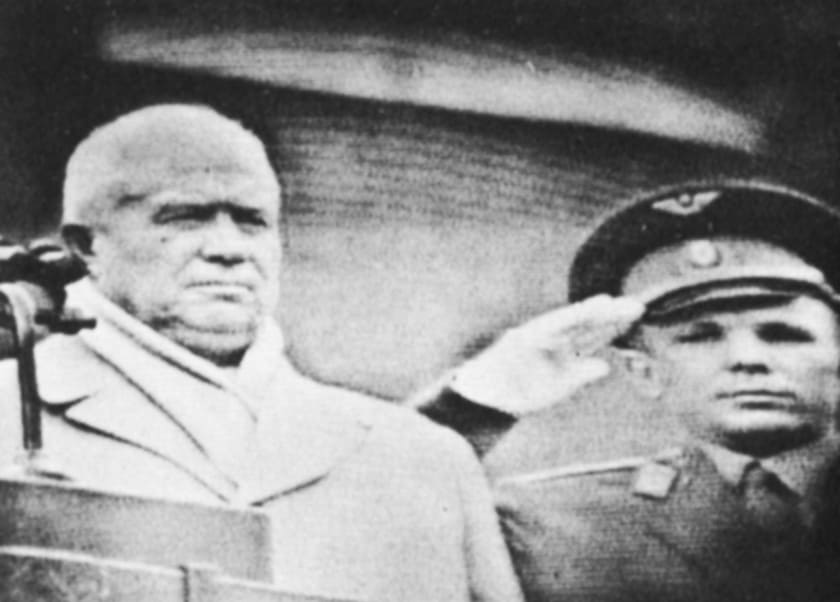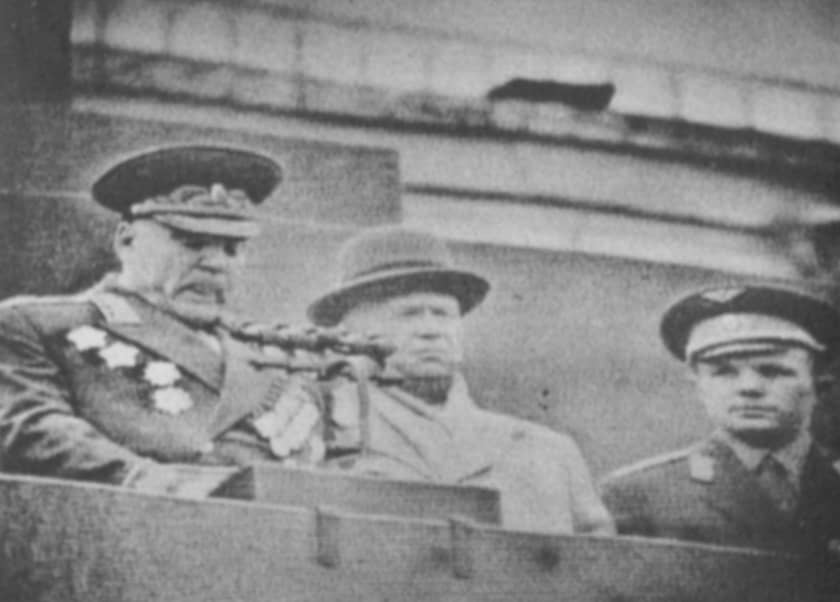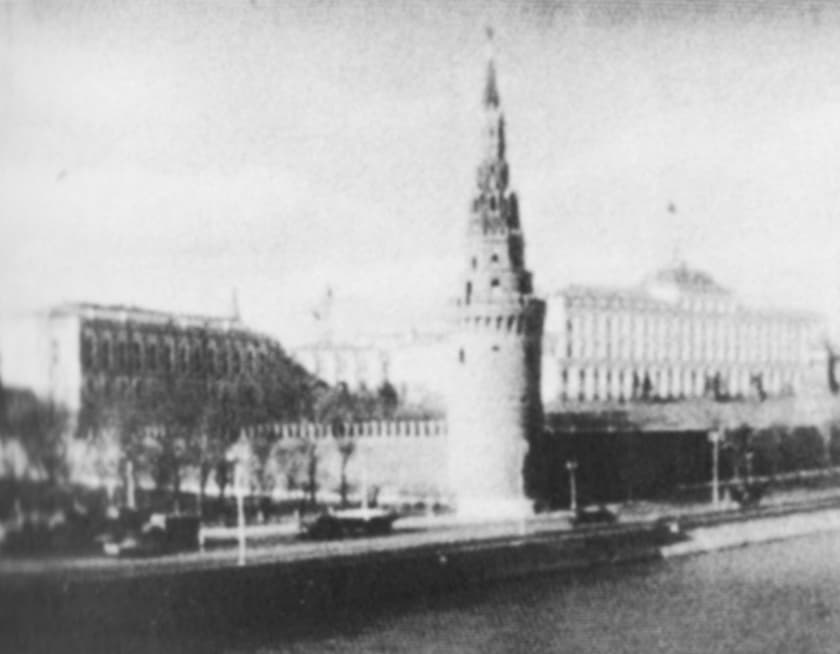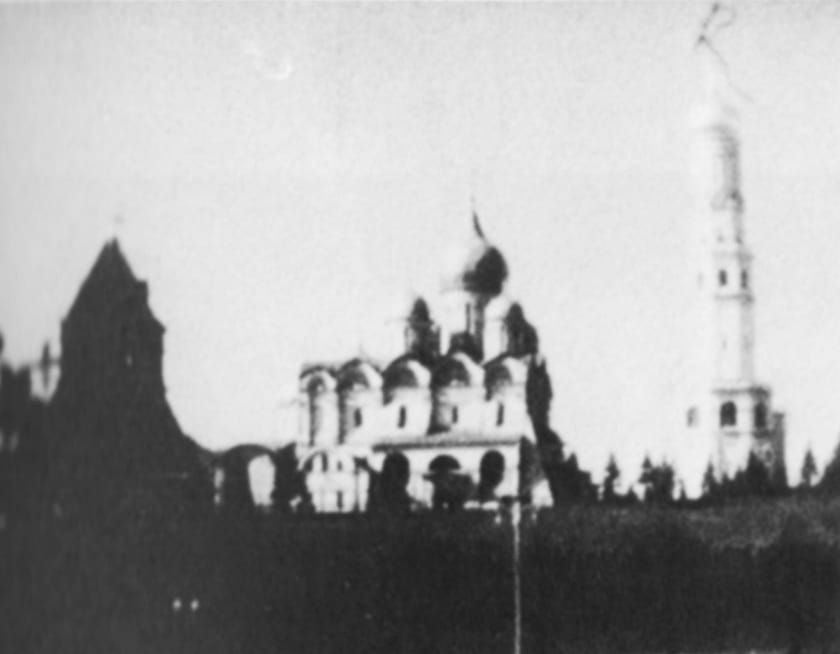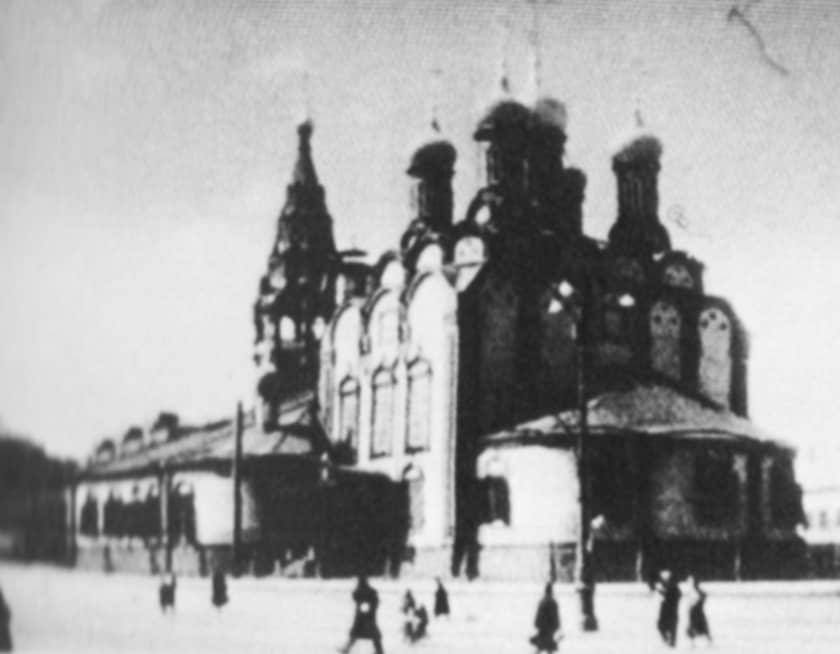It was 27 April 1961: four days before the first live television relay to Western Europe of the celebrated May Day Parade from Red Square, Moscow. Quite apart from the technical and political problems which had kept many of us active for months beforehand, this was as difficult and delicate a commentary as any that Richard had faced in his broadcasting career. It became all the more of a challenge when we learned that as a result of meetings in London it had been agreed that his commentary on the parade was to be shared with Boris Belitzky of Moscow Radio.
Richard was not pleased with the decision, but his irritation only showed itself in the extra colourful and pithy comments on life in general and Soviet waiters in particular during the two and a half hours that it took them to serve us dinner. He understood full well the pressures at work, and as on so many occasions, quietly stifled thoughts of self. He also knew and liked Belitzky. However, although it had been decided in principle that he and Boris should share the commentary, there was no ruling on how this was to be done. We had our views; the Soviet Television authorities were bound to have theirs; just twenty-four hours before transmission we met to talk about it in an office on the first floor of the barrack-like Television Centre.
The Chairman of the meeting was Konstantin Kuzakov, the Director of Television. With him was Yuri Fokin, the Head of News and principal commentator, and a number of others. But the focus was on just two men: Dimbleby and Belitzky. The latter, feeling slightly uncomfortable, a radio man directed to work in the relatively unfamiliar medium of television on a programme of considerable political importance; the former, shadow-boxing gently as the pleasantries were exchanged, sniffing the political air, sizing up the problem. And the rest of us sat around them like so many seconds out of the ring.
The May Day parade from Moscow, with Dimbleby in front of St Basil’s Cathedral in Red Square, and Marshal Malinovsky, Minister of Defence, taking the salute with Khrushchev and Gagarin
The meeting ground on in the way that meetings do in Moscow, until Kuzakov said that he was sure the best thing would be if the two commentators went to another office and settled the matter by themselves. Richard, with a quick ‘Don’t worry’ look at me, got up and said, ‘Splendid idea – come on, Boris, or we won’t get any lunch’.
Somewhere in the Soviet archives there may be a recording of what Richard said to Boris and what Boris said to Richard, both surely conscious that they were not alone. Richard told me later that it was all very polite but formal. After about an hour, they came back to Kuzakov’s office and told us how they intended to ‘divide’ the parade between them. There were some parts which still worried me, but on the whole it seemed that honour on both sides had been satisfied.
Boris and Richard and I lunched together at the Braga restaurant, all of us, I think, relieved that official needs had been met. It was very much a working lunch, with Richard asking question after question. Boris was weak on some of the military details but knew the parade well and was able to provide a lot of information about the personalities taking part. He was altogether very helpful to Richard and told me privately that he had a great respect for him as a broadcaster.
Although Richard had managed to secure the commentary on most of the politically tricky parts of the parade, there was still one item which worried us. At a certain point, workers from a locomotive factory were due to march on with garlands and banners bearing such slogans as ‘Hands Off Cuba’ and ‘Down with American Imperialism’. And this part was to be covered by Boris.
That evening we checked circuits and lines and microphones, while Richard settled down to his homework. At 2.30 a m. he was still working on the names of the Soviet Praesidium, calling them out as John Drummond held up their photographs. It was like some weird Russian parlour game – goodness knows what a listening monitor may have made of that night’s tape!
After a very few hours’ sleep, we all gathered at the breakfast bar on our floor. Richard was cheerful, with an edge of determination glinting through the banter. As usual, we had an interminable wait for the lift – Richard said he was certain that waiting for lifts was the principal reason why Russians read Dostoyevsky novels. After a car ride down Gorki Street, and a brief argument with the police cordon, we reached our room on the top floor of GUM, which, as every tourist knows, is the biggest department store in Moscow, and which runs along one side of Red Square, opposite the Kremlin. It was not an ideal commentary position – the windows were narrow and restricted the view to left and right. But it was directly opposite the saluting base on Lenin’s tomb, and there was plenty of room for notes and scripts. It was also warm, comfortable and well equipped.
Richard and Boris were in a sort of commentary booth near the window, screened by drapes and glass from the rest of the room. Each had a monitor in front of him and there was an on/off switch for the microphones. From a control position I had talk-back to Richard and Boris as well as communication with London. But there was little I could do now – it was all up to Richard and the pictures from the Soviet cameras. I was still concerned about Boris and those slogans. Of course I needn’t have worried. I should have remembered that in 1945 it was Richard who made a Russian patrol in Berlin release him by persuading them that he was a son of Winston Churchill. Instead of stopping his commentary, Richard ‘missed the place’ and went straight on, translating the slogans without emphasis and attracting attention to more interesting things. Then he switched off the mike, turned to Boris and said, ‘Oh, I’m terribly sorry, Boris, you were supposed to do that bit.’ Clearly, it wasn’t Boris’s fault.
Every instinct he had was at concert pitch that morning. Every word was carefully chosen and placed. I remember one particular moment when, at the end of the military parade, the ‘spontaneous demonstration’ of citizens of Moscow began. Across the square they came in their thousands, untidy and shuffling. It would have been all too easy to use the wrong verb: ‘shambling’ would have been too strong – ‘walking’ too weak. Richard used ‘ambling’ and somehow managed to make it sound as scruffy as it looked.
That evening we saw Richard off on the Comet back to London; but not to rest – by the very next morning he had to be in Naples to give a commentary on the arrival of Her Majesty the Queen and the Duke of Edinburgh at the start of their State Visit to Italy. There was not even time to go home, so a room in one of the airport hotels had been booked to allow him to relax for a few hours: and so that he could watch his own Panorama he’d arranged for a television set to be specially installed. With his mind still echoing with the events of a memorable May Day, Richard began to concentrate on the next task ahead. There were also letters to be signed and private business to be discussed during these hours between flights. Yet he found time to telephone each of our families and assure them that all was well with us – but then Richard, always and instinctively, found time for kindness.
